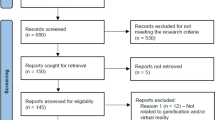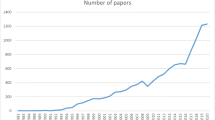Abstract
Outdoor fieldwork has been a long-standing pedagogy in the higher education sector, across a range of disciplines. Based on a review of the literature, this paper explores the use of outdoor fieldwork in the 21st century university with particular reference to the way technology contributes to student learning. Research has indicated that fieldwork enhances student engagement, links theory and practice, and assists students with the development of professional expertise. Many of the challenges for outdoor fieldwork, such as budget cuts, risk management concerns, and workload demands on staff, have been exacerbated by massification pressures in universities, such as the growth in student numbers and a more diverse student cohort. The increased use of technology on outdoor field trips both solves and creates problems, and technology use in outdoor education has been described as a double-edged sword (Cuthbertson, Socha, & Potter, 2004). It can be difficult for teachers to judge whether the benefits to student-learning outcomes created by introducing technology outweigh any negative impacts. Koehler and Mishra’s (2009) concept of technological pedagogical content knowledge suggests that teachers need to develop a very specific kind of knowledge to make informed decisions about the use of technology. The substitution, augmentation, modification, redefinition (SAMR) ladder (Puentedura, 2006) can contribute to this teacher knowledge by focusing on how the use of technology can transform student learning rather than just replace, or augment, existing teaching tools and strategies. Some examples of how technology is used at the different levels of the SAMR model in outdoor education are provided.
Similar content being viewed by others
References
Australian Institute for Teaching and School Leadership. (2016). Australian professional standards for teachers. Melbourne: AITSL. Retrieved from http://www.aitsl.edu.au/australian-professional-standards-for-teachers/standards/list
Andrews, J. R., Kneale, P., Sougnez, Y. G., Stewart, M. T., & Stott, T. M. (2003). Carrying out pedagogic research into the constructive alignment of fieldwork. Planet Special Edition, 5, 51–52.
Bellette, M. P. (2005). How are student approaches to learning navigation correlated with their assessment outcomes? Australian Journal of Outdoor Education, 9(2), 31–43.
Bester, L., Muller, G., Munge, B., Morse, M., & Meyers, N. (2017). Those who teach learn: Near-peer teaching as outdoor environmental curriculum and pedagogy. Journal of Outdoor and Environmental Education, 29(1), 7–13.
Boyle, A., Maguire, S., Martin, A., Milsom, C., Nash, R., Rawlinson, S.,... Conchie, S. (2007). Fieldwork is good: The student perception and the affective domain. Journal of Geography in Higher Education, 31(2), 299–317.
Burke de Silva, K. (2014). Biological fieldwork in Australian higher education: Is the cost worth the effort? International Journal of Innovation in Science and Mathematics Education, 22(2), 64–74.
Cook, V., Phillips, D., & Holden, J. (2006). Geography fieldwork in a ‘risk society’. AREA, 38(4), 413–420.
Cuthbertson, B., Socha, T. L., & Potter, T. G. (2004). The double-edged sword: Critical reflections on traditional and modern technology in outdoor education. Journal of Adventure Education & Outdoor Learning, 4(2), 133–144.
Devlin, M., Kift, S., Nelson, K., Smith, L., & McKay, J. (2012). Effective teaching and support of students from low socioeconomic status backgrounds: Resources for Australian higher education. Retrieved from http://www.lowses.edu.au
Dunphy, A., & Spellman, G. (2009). Geography fieldwork, fieldwork value and learning styles. International Research in geographical and Environmental Education, 18(1), 19–28.
Dyment, J. E., O’Connell, T. S., & Boyle, I. (2011). The intersection of Web 2.0 technologies and reflective journals: An investigation of possibilities, potentials and pitfalls. Journal of Outdoor Recreation, Education, and Leadership, 3(3), 137–150.
Fletcher, S., France, D., Moore, K., & Robinson, G. (2003). Technology before pedagogy? A GEES C&IT perspective. Ylanet Special Edition 5, 52–55.
Fletcher, S., France, D., Moore, K., & Robinson, G. (2007). Practitioner perspectives on the use of technology in fieldwork teaching. Journal of Geography in Higher Education, 31(2), 319–330.
French, G. (2016). Going pro: Point of view cameras in adventure sports research. Journal of Outdoor and Environmental Education, 19(1), 2–9.
Fuller, I., Edmondson, S., France, D., Higgitt, D., & Ratinen, I. (2006). International perspectives on the effectiveness of geography fieldwork for learning. Journal of Geography in Higher Education, 30(1), 89–101.
Hall, T., Healey, M., & Harrison, M. (2005). Fieldwork and disabled students: Discourses of exclusion and inclusion, Journal of Geography in Higher Education, 28(2), 255–280.
Herrick, C. (2010). Lost in the field: Ensuring student learning in the ‘threatened’ geography fieldtrip. AREA, 42(1), 108–116.
Hope, M. (2009). The importance of direct experience: A philosophical defence of fieldwork in human geography. Journal of Geography in Higher Education, 33(2), 169–182.
Kent, M., Gilbertson, D. D., & Hunt, C. O. (1997). Fieldwork in geography teaching: A critical review of the literature and approaches. Journal of Geography in Higher Education, 21(3), 313–332.
Koehler, M. J., & Mishra, P. (2009). What is technological pedagogical content knowledge? Contemporary Issues in Technology and Teacher Education, 9(1), 60–70.
Koehler, M. J., Mishra, P., & Cain, W. (2013). What is technological pedagogical content knowledge (TPACK)? Journal of Education, 193(3), 13–19.
Maguire, S. (1998). Group projects: An effective fieldwork teaching strategy. Earth Sciences Teachers’ Association Occasional Series, 2, 39–42.
Maskall, J., Stokes, A., Truscott, J. B., Bridge, A., Magnier, K., & Calderbank, V. (2007). Supporting fieldwork using information technology. Planet, 18(1), 18–21.
Mcguinness, M., & Simm, D. (2005). Going global? Long-haul fieldwork in undergraduate geography. Journal of Geography in Higher Education, 29(2), 241–253.
Nairn, K. (2005). The problems of utilizing ‘direct experience’ in geography education. Journal of Geography in Higher Education, 29(2), 293–309.
Puentedura, R. R. (2006). Transformation, technology, and education. Retrieved from http://hipposus.com/resources/tte/
Shulman, L. S. (1987). Knowledge and teaching: Foundations of the new reform. Harvard Educational Review, 57(1), 1–21.
Stokes, A., Collins, T., Maskall, J., Lea, J., Lunt, P., & Davies, S. (2012). Enabling remote access to fieldwork: Gaining insight into the pedagogic effectiveness of ‘direct’ and ‘remote’ field activities. Journal of Geography in Higher Education, 36(2), 197–222.
Thomas, G. J. (2015). Signature pedagogies in outdoor education. Asia-Pacific Journal of Health, Sport and Physical Education, 6(2), 113–126.
Thomas, G. J., & Munge, B. (2014). Best practice in outdoor environmental education fieldwork: Pedagogies to improve student learning. In M. Robertson, R. Lawrence & G. Heath (Eds.), Experiencing the outdoors: Enhancing strategies for wellbeing (pp. 165–176). Rotterdam, Netherlands: Sense Publishers.
Wall, G. P., & Speake, J. (2012). European geography higher education fieldwork and the skills agenda. Journal of Geography in Higher Education, 3(3), 421–435
Wattchow, B. (2001). A pedagogy of production: Craft, technology, and outdoor education. Australian Journal of Outdoor Education, 5(2), 19–27.
Welsh, K. E., Mauchline, A. L., Park, J. R., Whalley, B. W., & France, D. (2013). Enhancing fieldwork learning with technology: Practitioner’s perspectives. Journal of Geography in Higher Education, 37(3), 399–415.
Author information
Authors and Affiliations
Corresponding author
Additional information
He is the coordinator of a new Bachelor of Recreation and Outdoor Environmental Studies that started in 2016. He has worked in outdoor experiential education programmes in school and higher education contexts for more than 30 years and enjoys conducting research in the areas of facilitation, facilitator education, and fieldwork pedagogies.
Prior to this appointment he worked in the Outdoor & Environmental Education Department at La Trobe University for eight years. He is currently undertaking his PhD with a focus on fieldwork pedagogy and best practice in higher education. His primary teaching areas are introductory theory and practice in outdoor and environmental education, bushwalking, and expedition knowledge and practice.
Rights and permissions
About this article
Cite this article
Thomas, G.J., Munge, B. Innovative outdoor fieldwork pedagogies in the higher education sector: Optimising the use of technology. Journal of Outdoor and Environmental Education 20, 7–13 (2017). https://doi.org/10.1007/BF03400998
Published:
Issue Date:
DOI: https://doi.org/10.1007/BF03400998




